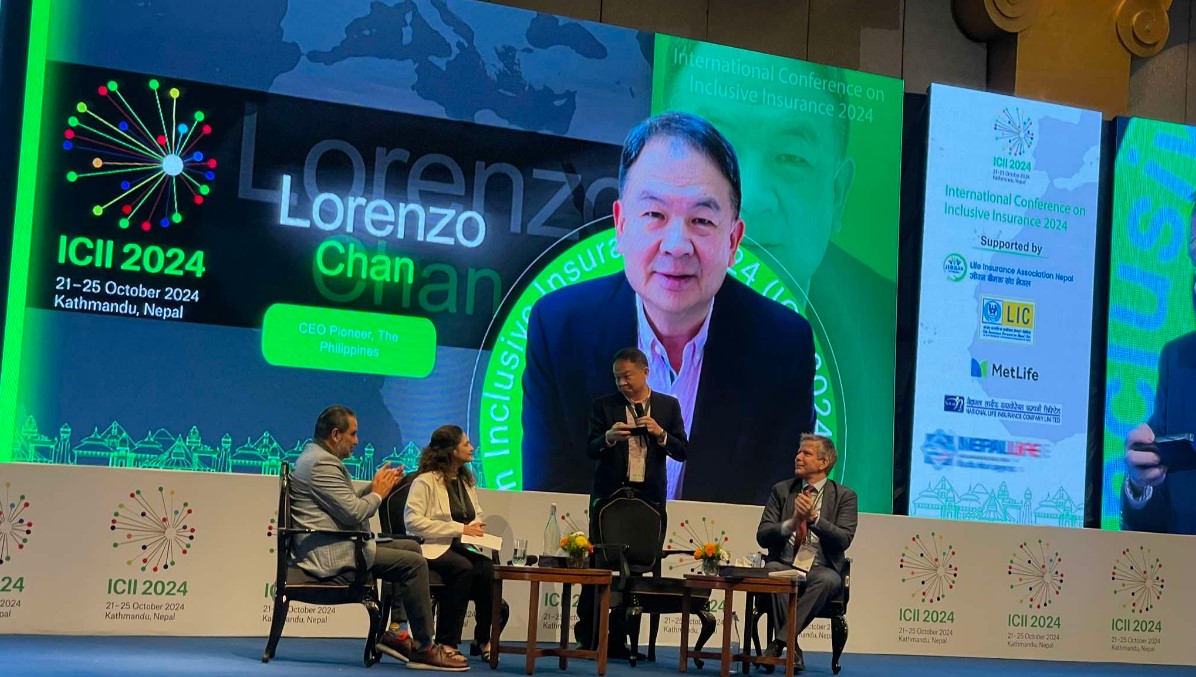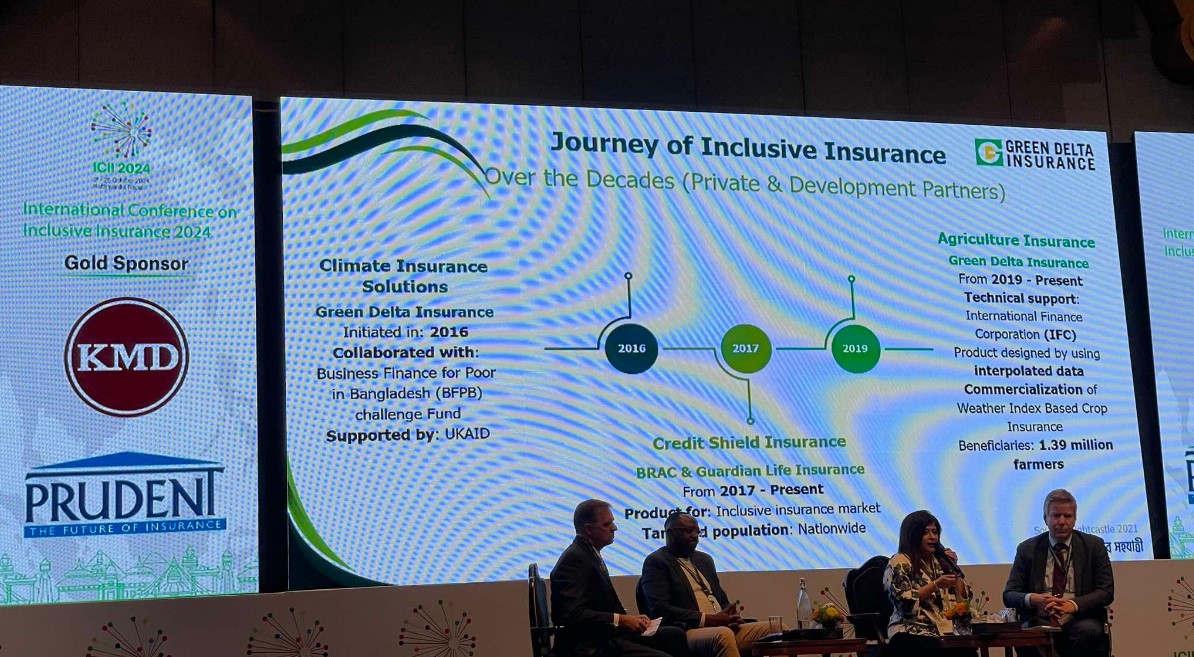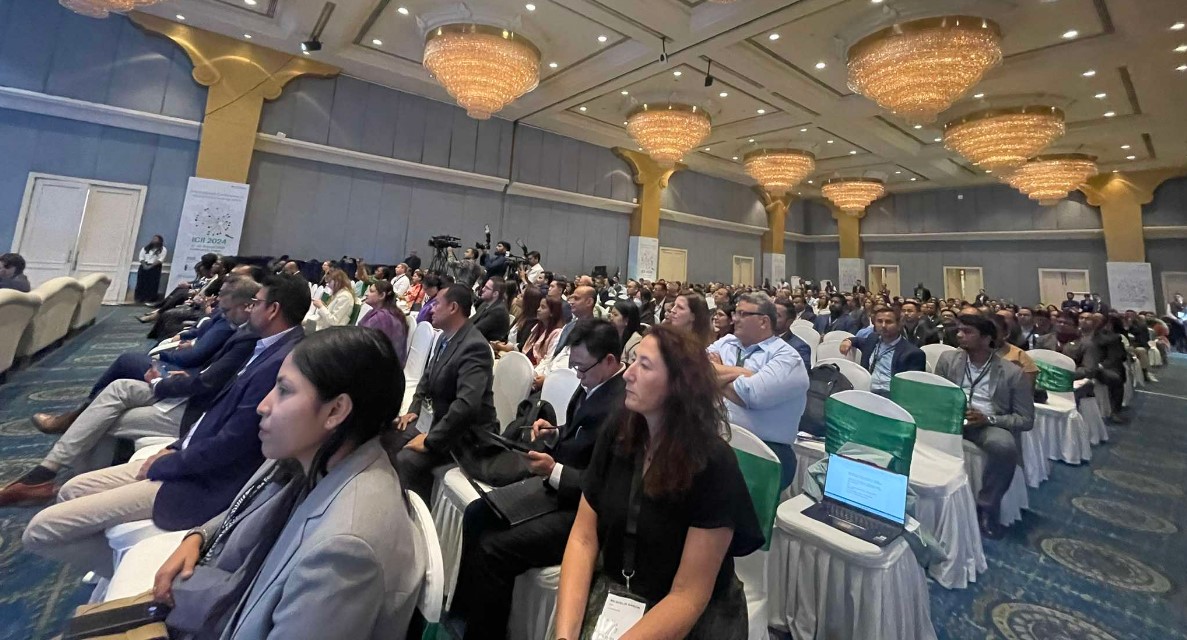ICII 2024: Global Insurance Leaders Conclude Discussions on Expanding Inclusive Insurance

Kathmandu- The International Conference on Inclusive Insurance (ICII) 2024, a landmark five-day event focused on enhancing insurance access for underserved populations, wrapped up today after holding 25 sessions over four days. The conference, which saw the participation of over 500 insurance experts and representatives from 41 countries, will officially conclude with a field visit tomorrow on October 25.
The most anticipated event organized by the Nepal Insurer Association, Nepal Insurance Authority, Life Insurers association of Nepal, and Micro Insurance association Nepal in collaboration with Munich Re Foundation and Micro Insurance Network, the event has been celebrated as a significant step in advancing inclusive insurance on a global scale.
The discussions were intensive and wide-ranging, with participants delving into various crucial topics such as climate change, pricing strategies, role of actuaries, the adoption of digital technologies in microinsurance, gender dynamics, parametric insurance, Influence of women in insurance sector and strategies to overcome barriers to inclusive insurance. Experts presented various working papers that highlighted the challenges and opportunities in the insurance sector, particularly in terms of expanding access to economically disadvantaged populations.

One of the key themes was how the insurance sector can adapt to societal needs while bridging the existing gaps in coverage. Participants explored innovative solutions that could enhance the reach of insurance products to low-income communities, focusing on both global and local perspectives.
Speaking at a conference, Dirk Reinhard, Vice Chair of the Munich Re Foundation, extended his thanks to the event organizers and acknowledged their unique role in raising awareness about microinsurance. He noted the importance of international collaboration in shaping a more inclusive global insurance landscape.
Pujan Dhungel Adhikari, from the Nepal Insurance Authority (NIA) expressed her gratitude to all who contributed to making the conference a success. She emphasized the belief that the discussions held would ease some of the barriers facing Nepal’s insurance market, particularly in making insurance more accessible to the underserved.
Lorenzo Chan, President and CEO of Pioneer Life and Retail Organization, praised the grandeur of the conference and the opportunity it provided for global leaders to engage in meaningful discussions about inclusive insurance solutions. He emphasized the importance of insurance, noting, “Some may think taking an action is expensive, but not taking an action will cost us more.”

Patricio Salas, Executive Secretary of FEDESEG, expressed his gratitude for the valuable insights shared by leading experts on inclusive insurance. He also highlighted that this is the perfect moment to host next ICII 2025 in Ecuador and assured that there will be significant participation, not only from Ecuador but from other Latin American countries as well.
Over the course of the event, various sessions explored topics such as disaster risk finance management, climate change, and the integration of digital technology to improve insurance access. The importance of creating insurance products that cater to underserved populations was a central focus, with a strong emphasis on the need for innovative, sustainable solutions that could withstand global challenges, particularly those related to climate risks.
As the conference draws to a close, participants are optimistic that the knowledge shared and partnerships formed will lead to tangible progress in expanding inclusive insurance both in Nepal and worldwide. The final field visit tomorrow will mark the end of the event, but the ideas and strategies developed over the past days are expected to leave a lasting impact on the global insurance sector.
The ICII 2024 has not only fostered critical discussions but has also set the stage for future collaboration and action, with stakeholders committed to implementing the insights gained to close the protection gap and enhance financial resilience in underserved communities.
